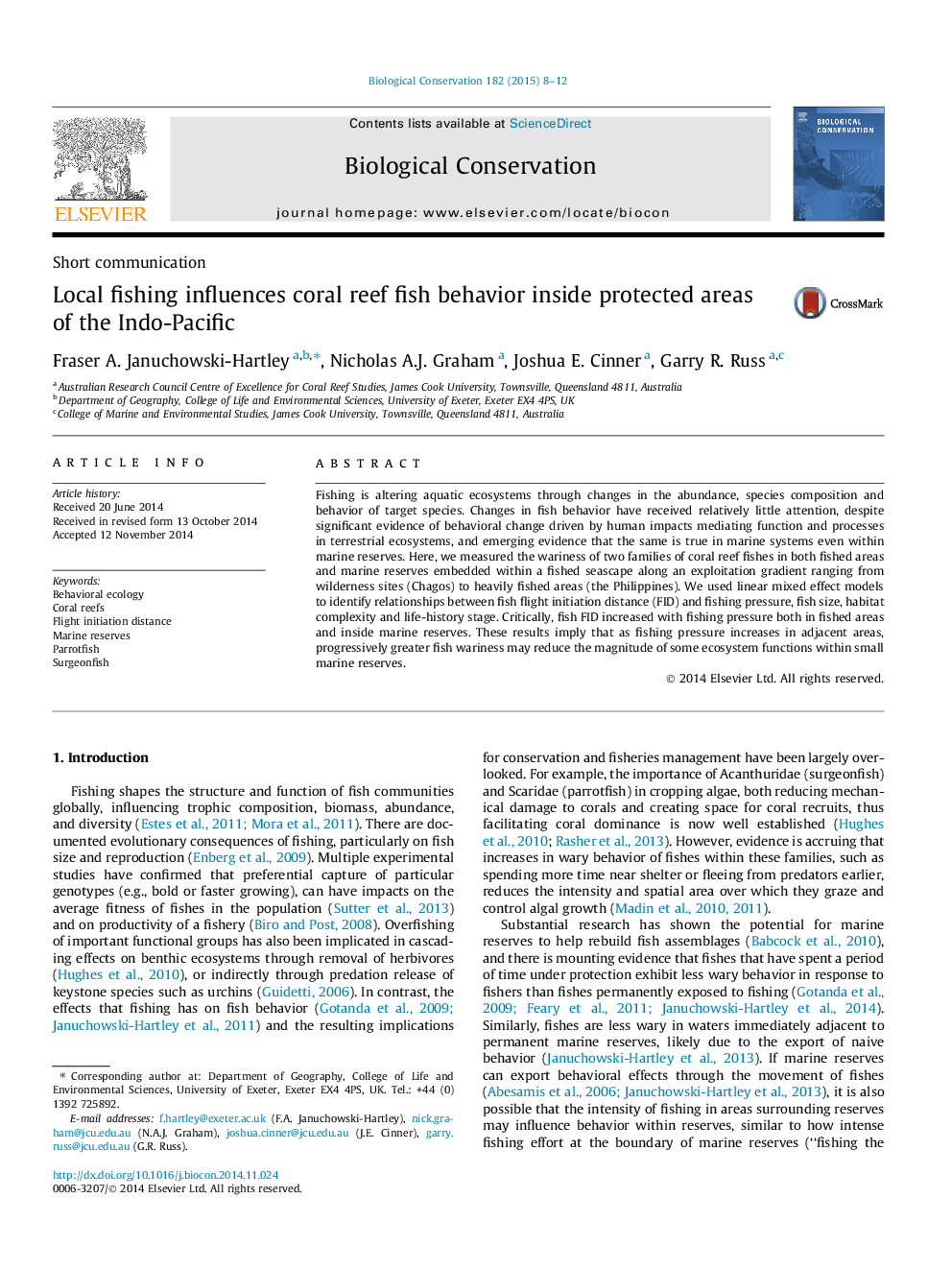| Article ID | Journal | Published Year | Pages | File Type |
|---|---|---|---|---|
| 6299336 | Biological Conservation | 2015 | 5 Pages |
Abstract
Fishing is altering aquatic ecosystems through changes in the abundance, species composition and behavior of target species. Changes in fish behavior have received relatively little attention, despite significant evidence of behavioral change driven by human impacts mediating function and processes in terrestrial ecosystems, and emerging evidence that the same is true in marine systems even within marine reserves. Here, we measured the wariness of two families of coral reef fishes in both fished areas and marine reserves embedded within a fished seascape along an exploitation gradient ranging from wilderness sites (Chagos) to heavily fished areas (the Philippines). We used linear mixed effect models to identify relationships between fish flight initiation distance (FID) and fishing pressure, fish size, habitat complexity and life-history stage. Critically, fish FID increased with fishing pressure both in fished areas and inside marine reserves. These results imply that as fishing pressure increases in adjacent areas, progressively greater fish wariness may reduce the magnitude of some ecosystem functions within small marine reserves.
Keywords
Related Topics
Life Sciences
Agricultural and Biological Sciences
Ecology, Evolution, Behavior and Systematics
Authors
Fraser A. Januchowski-Hartley, Nicholas A.J. Graham, Joshua E. Cinner, Garry R. Russ,
